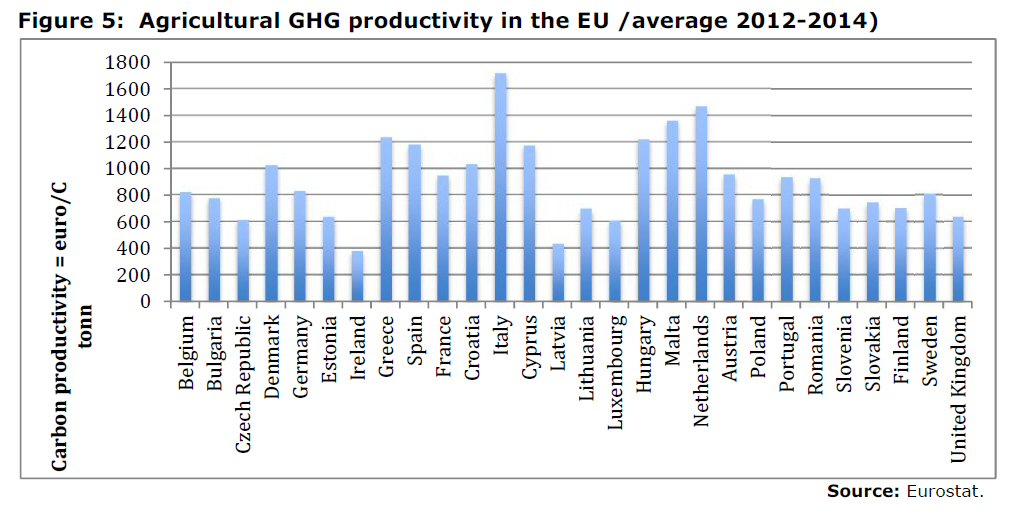Irish agriculture is the least climate-efficient in the EU

6th April 2017
Ireland has the least climate-efficient agricultural sector in Europe, according to a new EU report.
The report, commissioned by the European Parliament’s Committee on Agriculture and Rural Development, indicates that Ireland emits more greenhouse gas emissions per euro of agricultural output than any other EU member state.
Italy was the best performing country in the study, achieving an agricultural output of €1,700 per tonne of emissions, compared to less than €400 in Ireland. This measure is a widely-accepted international indicator to monitor green growth, according to the report.

Ireland is not on track to meet its climate targets for 2020 and 2030, with agriculture the single largest contributor to our overall greenhouse gas emissions, accounting for one-third of the total.
According to the EPA, agriculture emissions increased by 1.5 per cent in 2015, and are projected to increase by 6–7% for the period 2014 to 2020, mainly owing to methane from livestock.
The Irish Farmers’ Association (IFA) came out strongly against the Parliament’s report and accused environmental NGOs of misrepresenting its findings.
In a statement released on Monday, IFA environmental chairman, Thomas Cooney, said that NGOs “sit in judgement and criticism of the sustainable development of the agri-food sector” while providing no alternative vision for the sector.
No Irish environmental NGO had made any official comment or statement on the study at the time.
According to An Taisce’s John Gibbons, the IFA’s statement is a “direct attack on the integrity, motives and professionalism of Ireland’s environmental NGOs”.
It is “regrettable” that the IFA accused environmental groups of “trying to undermine the agri-food sector” instead of engaging with them more directly, said Mr Gibbons, a member of An Taisce’s Climate Change Committee.
“This form of gunboat diplomacy from the IFA is unhelpful and doubly disappointing emanating from a person chairing its ‘Environment Committee,” he added.
He called for an end to the “name-calling” and for more “constructive engagement” about the challenges that the Irish agricultural sector faces in the future.
“An Taisce believes it is time for a full and frank national dialogue on the future of food security and resilience on this island, one that moves past the ‘Origin Green’ slogans and addresses, for example, why Ireland has the second lowest amount of its farmland dedicated to organic agriculture in the EU,” he said.
According to Mr Gibbons, groups from both sectors can work together to tackle climate change and try and avoid potentially large EU fines for missing our emissions targets.
“It is in Ireland’s national interest to develop a climate-resilient, locally-based, sustainable model of food production that also plays its part in reducing greenhouse gas emissions that are destabilising the global climate,” he added.







